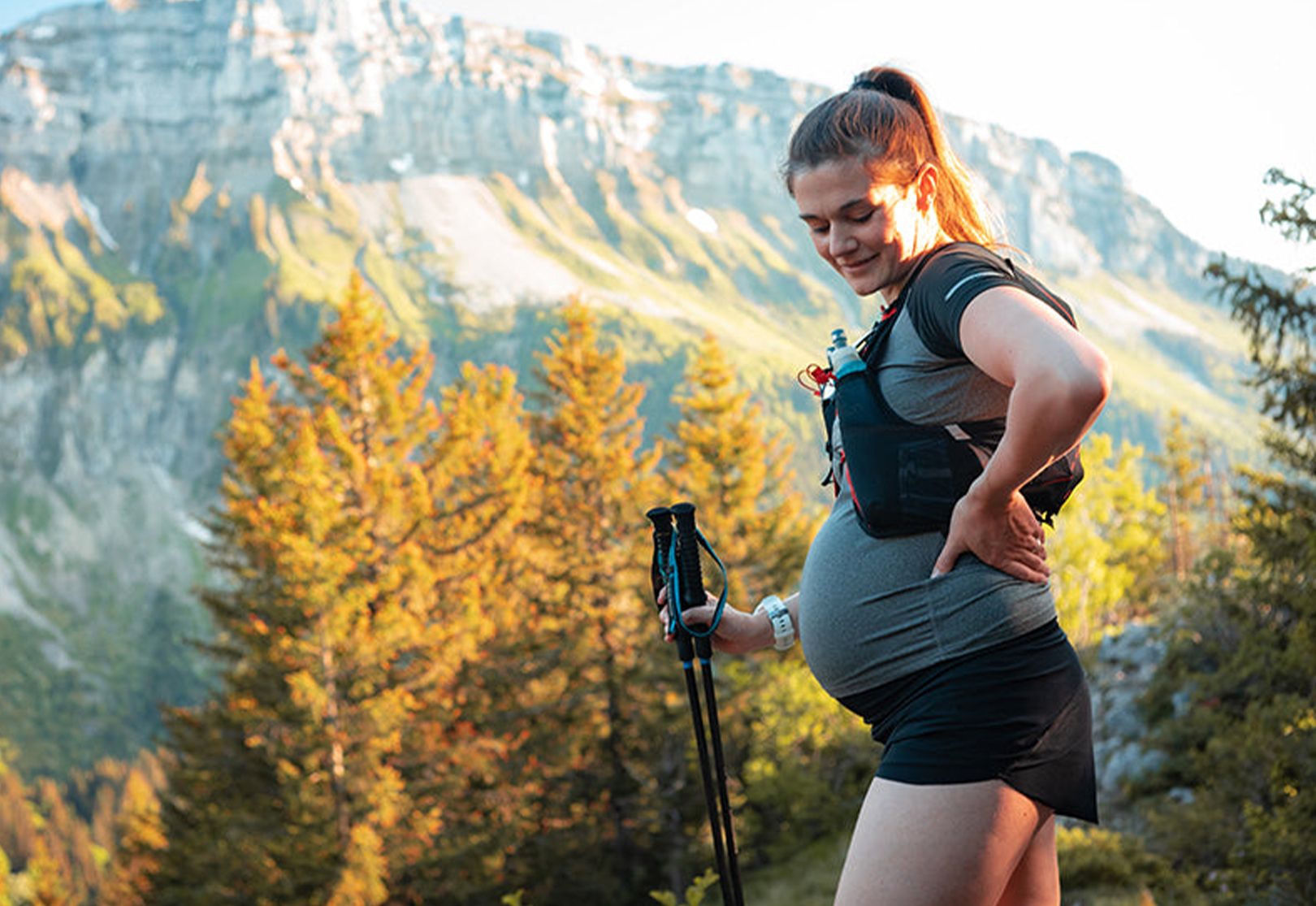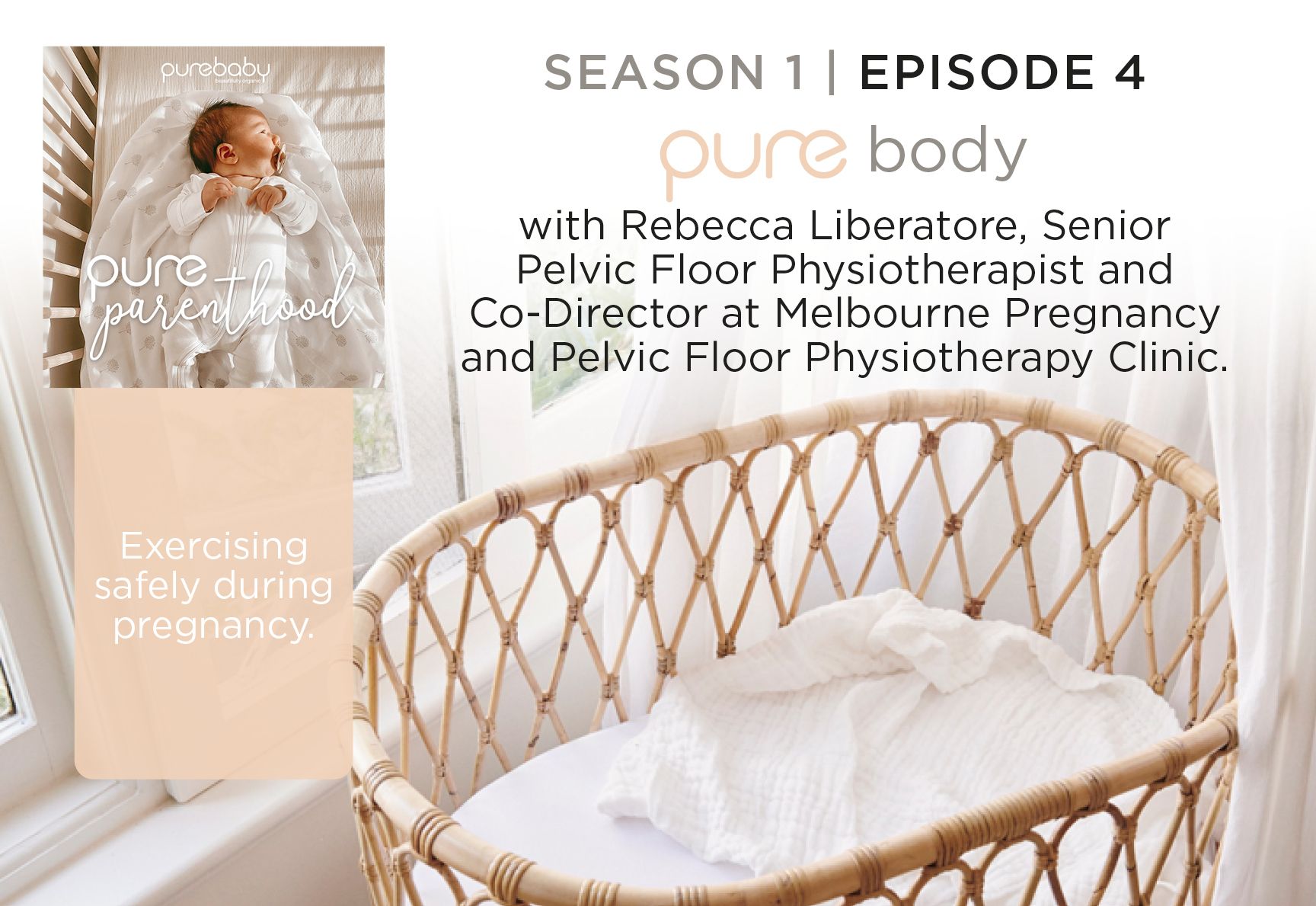
Benefits of Exercising While Pregnant
5 min read | 5 July 2021
New In
Essentials
Clothing
Accessories
Shop By Gender
Shop By Size
Collections
Baby
Clothing
Accessories
Shop By Gender
Shop By Size
Collections
Nursery
Care
Play
Kids
Clothing
Accessories
Shop By Gender
Shop By Size
Collections
Care
Play
Gifts
Baby Gifting
Kids Gifting
Shop By Price
Shop By Event
Shop By Gender
Sale
Sale
Shop By Gender
Learn
Education
Resources
Pre-Loved
Rewards
8 min read | 30 August 2020

Listen to episode four above or on Apple Podcasts or Spotify.
The Royal Australian College of Obstetrics and Gynaecology recommend pregnant women should aim to be physically active on most, or preferably, all days of the week. For previously sedentary women and those that are overweight or obese, exercise should be performed every second day and built up slowly. Exercise should be performed for approx. 30 minutes per day at a moderate intensity and be a combination of strength and aerobic (huff and puff) exercise.
Benefits of remaining active throughout pregnancy:
Reduced fatigue
Reduced swelling in the limbs
Reduced stress, anxiety and depression
Can help to prevent gestational diabetes and improve sugar levels in women who have diabetes
Relief from nausea and vomiting
Prepare the body for the physical demands of labour
It is important to note that there is no increase in adverse pregnancy or neonatal outcomes in women who exercise throughout their pregnancy, it is in fact the opposite. Regular exercise during pregnancy has been associated with both healthy weight ranges and healthy cardiovascular function for baby.
A common question is “what form of exercise is the most beneficial to perform?”. While every woman is different, it is recommended that a combination of strength and cardiorespiratory exercise. It is also important for it to be a combination of activities you enjoy.
Here are some ideas to get you exercising safely during your pregnancy:
Clinical Pilates is a great option to increase women’s strength and awareness of their deep abdominal muscles as well as many other important muscles groups such as the pelvic floor muscles. If taught by a specialist Women’s Health Clinic, classes can be individually targeted to address any weaknesses women may have, to either prevent or treat musculoskeletal conditions of pregnancy. Furthermore, it can lead to increased flexibility, improved posture, postural awareness and resultantly help with many of those musculoskeletal aches and pains that are common during pregnancy.
Prenatal yoga is another great option for exercise during pregnancy, as it has many physical and mental health benefits. Similar to clinical Pilates, it can help to increase the strength and flexibility of many of the muscles important in supporting our bodies throughout pregnancy and specifically during childbirth, such as our pelvic floor, hips and gluteals. It can also aid in stress relief and relaxation throughout pregnancy and assist you in maintaining present and calm during labour. There are many face-to-face and online Clinical Pilates and prenatal yoga classes currently available.
Low impact exercise options reduce the pressure of the pelvic floor muscles. Women can safely push themselves on a stationary bike to get that real “huff and puff” workout, which they may not be able to with other forms of exercise, such as walking. That “huff and puff” is important to get all the benefits of exercise previously mentioned. Stationary bike has the added benefit of allowing women to exercise with their pelvis stabilized, which is especially important for those with pelvic pain. It not only helps with aerobic fitness, but it specifically strengthens the gluteal muscles - which are so important in maintaining pelvic stability and reducing the chances of pelvic pain during pregnancy.
This is another low impact option for exercise. Swimming is fantastic not only for fitness, but great for those with upper and lower back stiffness. Swimming has the added benefit of allowing women to feel weightless while exercising. For many, this is a big relief - especially for those who are further on in their pregnancy. Furthermore, swimming can be modified for women with pelvic pain with the use of a pool buoy between your legs, if you are finding the kicking is aggravating your pain. It is recommended that women do not do breaststroke kick as this can cause pelvic pain.
Walking is free and requires no equipment. This is important as it increases the likelihood of women performing it on a regular basis. It is low impact and intensity can be increased by adding hills and increasing speed. Early in pregnancy, this is a great option for women. However, as women progress in their pregnancy walking isn’t always comfortable and women don’t seem to be able to push themselves hard enough to get up a “huff and puff”. Furthermore, women with pelvic pain may find this aggravates their pain. In this case, it is recommended they limit walking and perform other forms of exercise.
It is important for woman to note the changing stages of their pregnancy and are advised to stop exercise and seek medical opinion if they experience any of the following:
Chest pain
Unexplained shortness of breath
Dizziness, feeling faint or headache
Muscle weakness
Calf pain, swelling or redness
Sudden swelling of the ankles, hands or face
Vaginal bleeding or amniotic fluid loss
Decreased foetal movement
Uterine contractions or pain in the lower back, pelvic area or abdomen (potentially indicating preterm labour)
A consult with a Women’s Health Physiotherapist is the best way women can be provided with individual advice about the best form of exercise for them. Furthermore, it is recommended women have their pelvic floor muscles checked in this appointment, and a strengthening program can be commenced and built upon during their pregnancy.
Download the episode transcript here
This article was written by Rebecca Liberatore from Melbourne Pregnancy and Pelvic Floor Physiotherapy clinic, in conjunction with episode 4 of Purebaby’s podcast, Pure Parenthood. To learn more about MPPP, visit their website for more information here.
Sign up to Pure Love Rewards and get $10 off your first online order, earn points every time you shop and more!